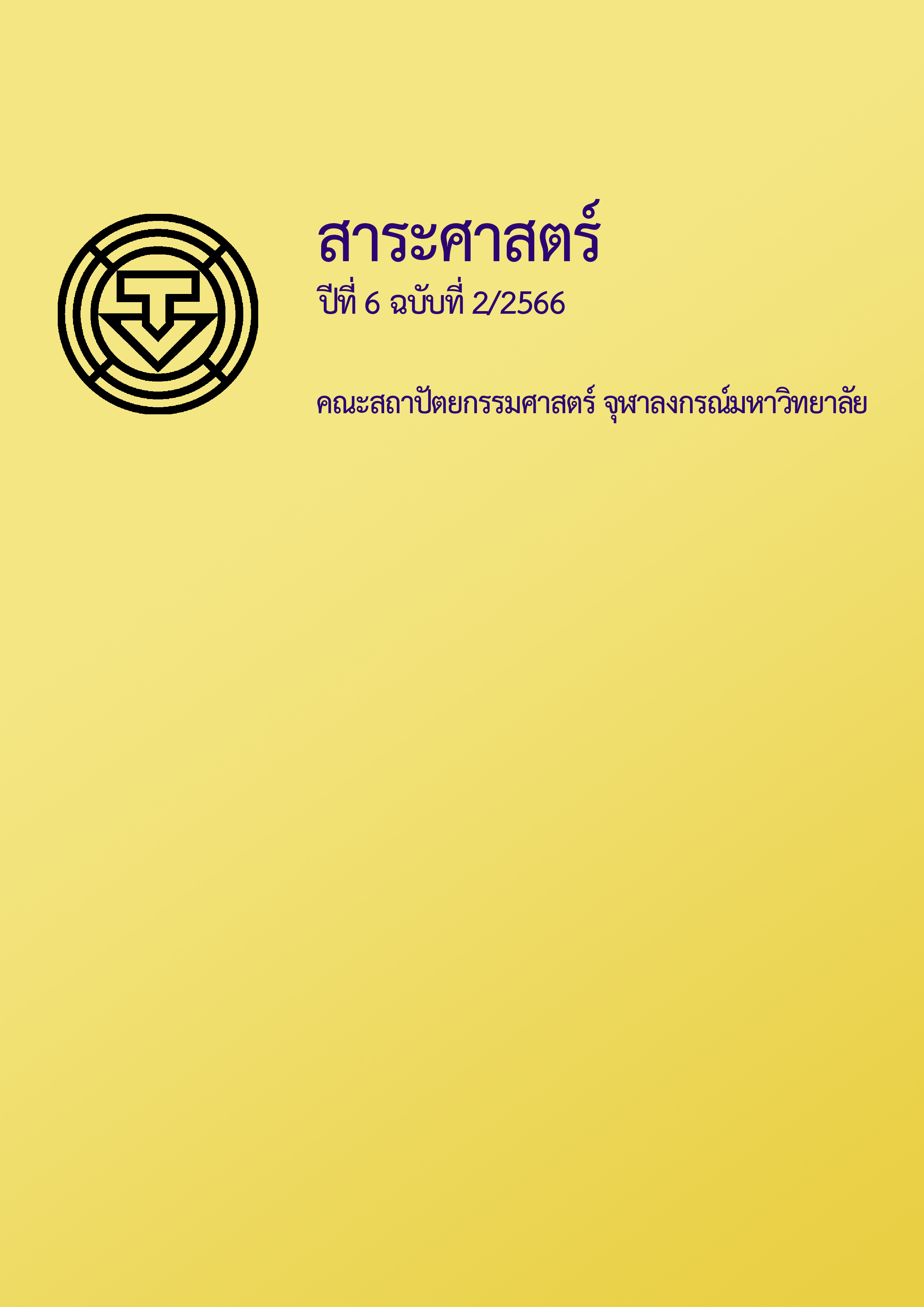Guidelines for Developing a Health Resort of Holistic Health Care during the Covid-19 Pandemic
Main Article Content
Abstract
Wellness Tourism in Thailand It is a new type of tourism that both Thai and foreign tourists are interested in coming to use the service in the health resorts of Thailand with different purposes for each person. During the epidemic of the COVID-19 virus Health resorts have been greatly affected and must adapt to overcome this crisis. The purpose of this research article is to study the adaptation guidelines of health resorts during the COVID-19 pandemic, uncluding guidelines for risk management, the target group, marketing, service, physical characteristics within the organization and guidelines for the development of health resorts when there is an epidemic situation that is similar in the future effectively There are 3 case studies in this research and it is qualitative research by in-depth interviews with 4 entrepreneurs or executives, 2 Medical specialists, and 30 health resort consumers making, a total of 36 people, and participatory action research.
The study found that 1) the target group of health resorts mainly depends on Thai tourists during the COVID-19 epidemic. 2) In terms of marketing for health resorts, prices, and activities have been adjusted to suit Thai tourists. 3) Most consumers have more healthy travel behaviors. The factors affecting the decision to travel to health resorts are the price factor, followed by the service factor within the health resort. 4) Medical specialists express their opinion that health tourism and health resorts in Thailand tend to grow after the outbreak of COVID-19.
This research showed guidelines for the development of health resorts adapt during the COVID-19 pandemic. However, the government should have a policy to help entrepreneurs. in short, medium, and long term to help Thailand's tourism sector in times of crisis.
Article Details
References
กระทรวงมหาดไทย. ศูนย์บริหารสถานการณ์โควิด-19 (ศบค.). (2564). รายชื่อจังหวัดที่เป็นพื้นที่ควบคุมสูงสุดและเข้มงวด (พื้นที่สีแดงเข้ม) เพื่อควบคุมสถานการณ์การแพร่ระบาดโควิด-19. https://www.thaigov.go.th/news/contents/details/46974
การท่องเที่ยวแห่งประเทศไทย. (2564a). เตรียมความพร้อมให้ผู้ประกอบการขนส่งรายย่อยของภูเก็ตด้วยมาตรฐาน SHA สู่ SHA Plus. https://www.thailandsha.com/news/69
การท่องเที่ยวแห่งประเทศไทย. (2564b). รางวัลอุตสาหกรรมท่องเที่ยวไทย ครั้งที่ 13 ประจำปี 2564. https://tourismawards.tourismthailand.org/#Home
ไกรพัชร เทศประสิทธิ์. (2563). พฤติกรรมต่อการเข้าพักโรงแรมที่มีการนำกิจกรรมสร้างเสริมสุขภาพมาปรับใช้ กรณีศึกษา : นักท่องเที่ยวที่สนใจเข้าพักโรงแรมขนาดเล็กในจังหวัดจันทบุรี [วิทยานิพนธ์ปริญญามหาบัณฑิต ไม่ได้ตีพิมพ์]. จุฬาลงกรณ์มหาวิทยาลัย.
ฐานเศรษฐกิจ. (2565). “ท่องเที่ยวเชิงสุขภาพ” มาแรง โอกาสตลาดท่องเที่ยวไทย. https://www.thansettakij.com/business/tourism/540602
ทรายแก้ว บัวเกตุ. (2558). กระบวนการพัฒนาโครงการรีสอร์ทเพื่อสุขภาพ กรณีศึกษา : โครงการเต๋าการ์เด้นเฮลธ์สปาแอนด์รีสอร์ทและโครงการ ปานวิมานเชียงใหม่ สปา รีสอร์ท [วิทยานิพนธ์ปริญญามหาบัณฑิต ไม่ได้ตีพิมพ์]. จุฬาลงกรณ์มหาวิทยาลัย.
มนไท เหรัญญะ. (2562). พฤติกรรมการเข้าพักโรงแรมที่มีการนำกิจกรรมเชิงสุขภาพมาปรับใช้ กรณีศึกษา :นักท่องเที่ยวที่สนใจเข้าพักโรงแรมขนาดเล็ก จังหวัดเชียงใหม่ [วิทยานิพนธ์ปริญญามหาบัณฑิต ไม่ได้ตีพิมพ์]. จุฬาลงกรณ์มหาวิทยาลัย.
มหาวิทยาลัยมหิดล. วิทยาลัยนานาชาติ. (2563). นโยบายบรรเทาผลกระทบจาก COVID-19 เพื่อช่วยภาคการท่องเที่ยวไทยให้พ้นจากภาวะวิกฤต. https://muic.mahidol.ac.th/eng/wp- content/uploads/2021/10/RevisedV3POLICY-BRIEF-MUIC-Tourism-1.pdf
เราเที่ยวด้วยกัน. (2566). โครงการเราเที่ยวด้วยกันเฟส 5 เริ่ม 7 มีนาคม – 30 เมษายน 2566. https://www.เราเที่ยวด้วยกัน.com/information
โรงพยาบาลมนารมย์. (2565). การพยาบาลแบบองค์รวม (Holistic Care). https://www.manarom.com/blog/Holistic_Care.html
Amazing Thailand. (2564). Amazing Thailand health & wellness holidays. https://tourismproduct.tourismthailand.org/th/article-detail/553
Global Wellness Institute. (2021, December). Wellness tourism, spas, and thermal/mineral springs. In The global wellness economy: Looking beyond COVID (pp. 71-86). The Institute.


